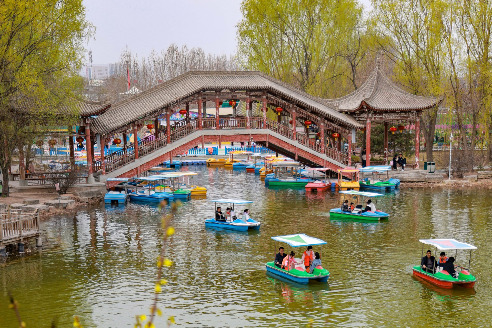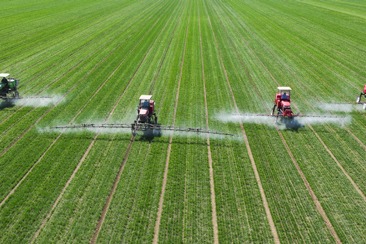Nation to boost protection of marine habitats


Ministry's efforts in curbing pollution discharge from land sources successful
China will step up measures to protect and restore habitats for marine species over the next five years as the country strives to improve biodiversity conservation, a Ministry of Ecology and Environment official said.
The quality of the marine environment has "generally improved "since 2018, when the responsibility for dealing with marine pollution was transferred from the State Oceanic Administration to the ministry, said Ke Chang, director of the ministry's Department of Marine Ecology and Environment.
By the end of 2020, the proportion of water of "fairly good quality" near the shore of the Bohai Sea was 82.3, which was 9.3 percentage points higher than the national target, he said. The proportion of fairly good quality water stood at 77.9 percent at the end of 2019, a sharp increase from 2018, according to the ministry.
Under the country's four-tier classification system for seawater, water quality is considered fairly good if it reaches Grade II or above.
Ke said the improvements followed coordinated efforts to control terrestrial and marine pollution after the ministry took over responsibility for dealing with marine pollution.
In its efforts to curb pollution discharge from land sources, the ministry located 18,886 drainage exits in the Bohai Sea to improve monitoring and control.
Ten monitoring sections for rivers that flow into the Bohai Sea, which had water quality below Grade V-the lowest level in the grading system for surface water-have all seen water quality improve, Ke said. The ministry has managed to restore 8,891 hectares of coastal wetland and 132 kilometers of shoreline in the Bohai region.
The environmental watchdog has also worked to establish a governance system to better coordinate control of terrestrial and marine pollution, Ke said.
Aside from promoting amendments to the country's Marine Environment Protection Law, the ministry has been accelerating the establishment of systems for the management of wastewater discharge from aquaculture as well as marine waste governance, he said.
The ministry has set up three bureaus that govern drainage basins and connected sea areas to promote integrated supervision to further improve marine environment governance.
The country needs to do more to reverse the deterioration of the marine ecosystem, Ke said. Of 24 key marine ecosystems monitored in 2020, one was found to be unhealthy, while 16 others were given "subhealthy" status. Some coastal wetland ecosystems remain damaged, and more effort is needed to reverse the situation, he said.
He also noted a series of problems the country faces in marine environment governance, such as damage to mangrove forests and coral reefs.
Ke said the ministry will bolster its efforts to conserve marine biodiversity by protecting and restoring animal habitats in the 14th Five-Year Plan (2021-25) period and beyond.
Aside from carrying out surveys, assessments and monitoring to gain a clearer picture of the country's marine biodiversity, China will increase long-term monitoring in key sea areas and establish a network for marine biodiversity monitoring and evaluation, he said.
Prioritized protected areas will be set up to help endangered species and restore areas that can function as pathways for the species' migration and communication.
The ministry will also conduct regular supervision of areas with important ecological functions and habitats for key species, he said.
- China unveils guidelines to boost employment for college graduates
- Former county official sentenced to prison for bribery
- China achieves breakthrough in solar-powered water splitting for hydrogen production
- Festivities kick off on Meizhou Island for month-long Mazu celebration
- Mobile cafes trending in China's countryside
- Xizang Story: A guardian of Lhasa's green mountains




































